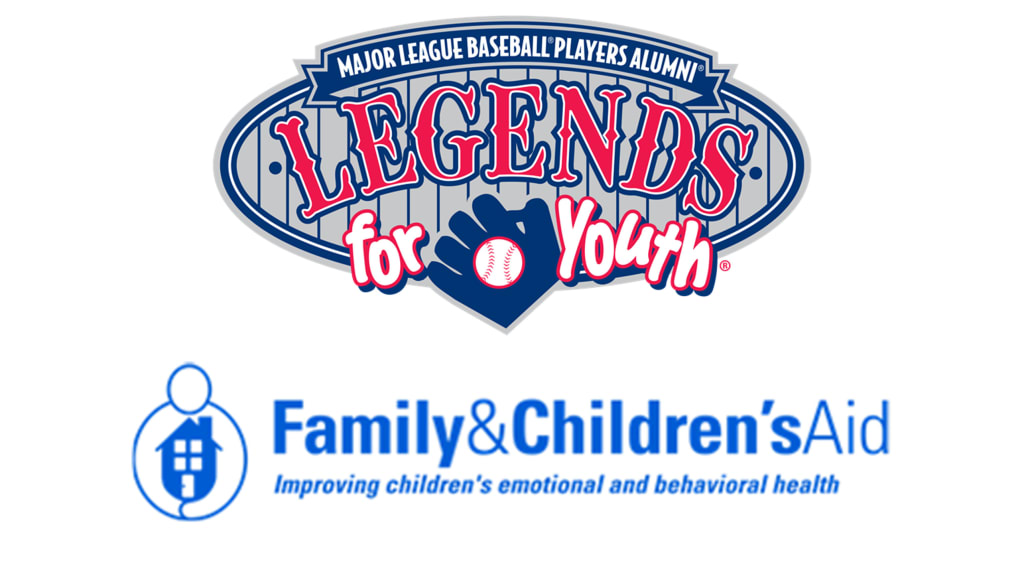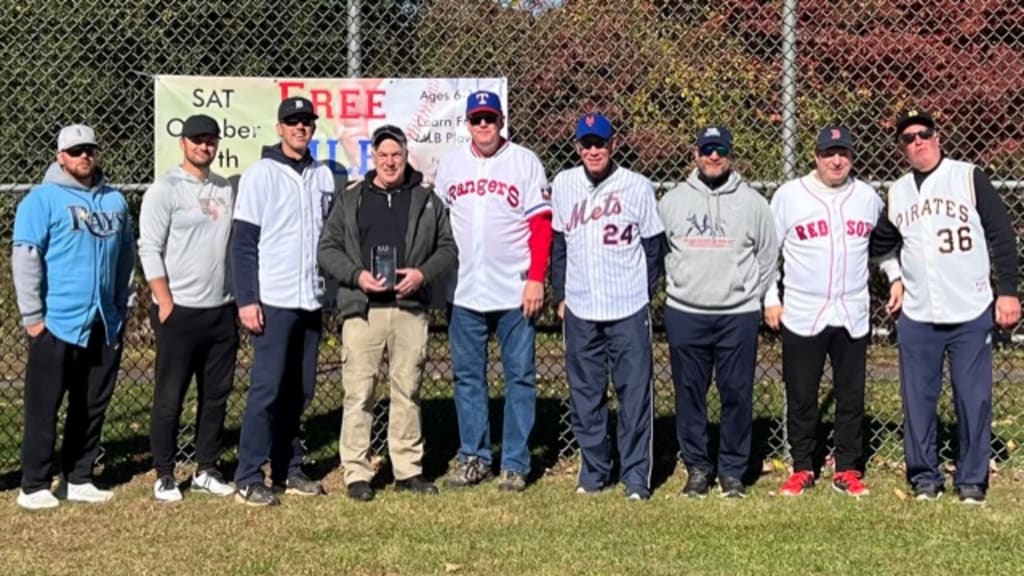
¡°If I can instill one thing in you today that helps you become a better player, I¡¯ve done my job,¡± Art Shamsky said to a group of onlooking 10-year-olds standing at his hitting station. ¡°The most important things about hitting is finding a comfortable stance, being balanced, focusing when you¡¯re in the batter¡¯s box and getting a little better at every level you play.¡±
Shamsky, former Cincinnati Red and member of the 1969 Miracle Mets World Series Champion team, described the journey of improving as a player: simply as incrementally bettering oneself every year. And that is what the partnership between the MLBPAA and the Family & Children¡¯s Aid organization has set out to do; bettering the lives of every child that steps foot in the Family & Children¡¯s Aid (FCA) building and takes part in the collaborative youth baseball clinics.
The FCA is a non-profit organization that offers a multitude of programs for providing high-quality behavioral health services for children and families, including foster care, mental health outpatient services and community-based outreach projects. The MLBPAA and the FCA started their partnership seven years ago to connect families and improve children¡¯s baseball skills in a fun environment. This Saturday, on Oct. 29, the FCA sponsored their seventh MLBPAA clinic of the year at New Milford High School in New Milford, Conn., where Kevin McNellis (FCA¡¯s Director of Operations) was honored with a Tiffany & Co. Award of Appreciation.
More than 60 young athletes from the ages of 6-14 were in attendance for the final FCA sponsored clinic of 2022 when MLBPAA board member John Doherty, presented McNellis with the appreciation award. ¡°This is why we¡¯re here. We want to give back,¡± Doherty commented with a smile on his face and firm handshake with McNellis. ¡±The MLBPAA appreciates the unwavering support from the Family & Children aid and the hard work of Kevin McNellis.¡± McNellis, surprised and thankful for the meaningful award, emphasized that his work is for all of the children involved and these clinics couldn¡¯t be done without the MLBPAA. ??

"There is no better way to introduce the families to behavioral health than in a soft approach where the kids want to be here. You put eight baseball players on the field; they want to be here¡. It¡¯s great to have the MLB here. The kids just have a great experience,¡± McNellis warmly reflected.
Following the award presentation, the participants were separated into groups and rotated to receive instructions from the professionals on essential skills like pitching, fielding, hitting, baserunning, bunting and wrapped up with a group talk centering on the importance of working hard when nobody else is watching in both the classroom and the field. Along with Doherty and Shamsky, words of wisdom were freely passed along to the clinic participants by left-handed pitcher CJ Riefenhauser, right-handed pitcher Fred Cambria, first baseman Gary Holle, first baseman Oreste Marrero, 11-year journeyman Joe Lahoud, catcher Matt Merullo and Golden Glove Award winner Joe Panik. Each coach brought their own style of teaching to their individual station, and the youngsters soaked up their presence and sentiments during every round of instruction.
It was all business at Riefenhauser¡¯s pitching station, with kids were settled in perfectly straight lines across from their throwing partner. CJ¡¯s booming voice could be heard from across the field as he walked his station members through the basic form steps of a pitching motion. ¡°I think the biggest thing is the foundation. Trying to build a foundation is what everyone here is trying to do and if they can take away one or two things, awesome,¡± voiced Riefenhauser.
Panik¡¯s light-hearted infield station was riddled with inquisitive comments that were asked between every skill repetition; ¡°Are you faster than JD? How did you bat against Gerrit Cole? When were you an All-Star? Why did you retire if you won a World Series?¡± Panik could only laugh and try to reply to every child¡¯s query. ¡°These kids are like beat reporters.¡± Panik responded, ¡°When they're having fun is when they¡¯ll learn the best¡.This reminds me of great memories of being a kid and loving the game. For me this brings the joy back and that is what baseball should be about.¡± Panik entertained dozens of questions from the kids about his performances against their favorite ballers while also educating them to use their feet in conjunction with their hands for better shortstop play.
The final activity was an autograph signing session; the coaches stuck around to sign memorabilia and talk with the youths and their parents. Despite the chilly Connecticut weather, every participant and coach left the clinic with a smile on their face after participating and contributing to a community sport that has positively impacted so many people¡¯s lives. Oreste Marrero summed up the clinic perfectly when he added at the conclusion, ¡°That was beautiful. That¡¯s what we do. Teach you guys to play better."
